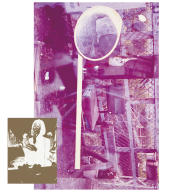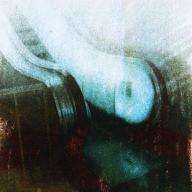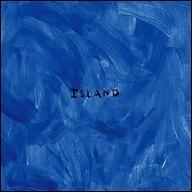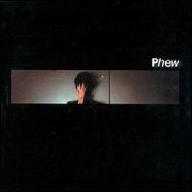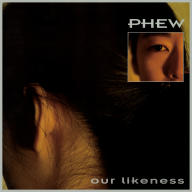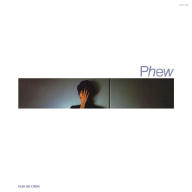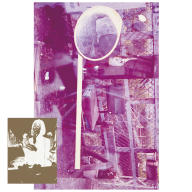Born Hiromi Moritani in Osaka, Phew got her start in the 1970s, when she became so fascinated with punk music that she flew to London in 1977 to see the Sex Pistols. When she returned, she formed the punk group Aunt Sally with guitarist Bikke, keyboardist Mayu, bassist Kataoka, and drummer Takashi Maruyama, but the band split up soon after releasing their 1979 self-titled debut album, which was released in a limited edition of 400 copies. To make her debut as a solo artist, she worked with Yellow Magic Orchestra's Ryuichi Sakamoto, an Aunt Sally fan who produced 1980's single "Finale/Urahara"; in turn, Phew appeared on Sakamoto's single "Shuukyoku." That year, she also performed on singer/songwriter and actor Agata Morio's album Norimono Zukan. For her first full-length, Phew worked with Can's Holger Czukay and Jaki Liebezeit at the German studio of Conny Plank, who also produced the album. Largely improvised, 1981's Phew won praise for its expressive mix of electronics and post-punk as well as Phew's voice, which earned her comparisons to Nico.
Phew returned in 1987 with View, which balanced her avant-garde impulses with pop polish, and emerged again with 1991's moody EP Songs. She signed to Mute for the following year's album Our Likeness, which reunited her with Plank and Liebezeit and featured contributions from Alexander Hacke and Chrislo Haas in its energetic experiments. Phew remained busy for the rest of the '90s, first working with Anton Fier on 1993's Dreamspeed and the following year's Blind Light, then delivering her third album, Himitsu no Knife, in 1995. Another effort that mixed challenging and pop-oriented fare, it counted Otomo Yoshihide and Tatsuo Kondo among Phew's collaborators. That year, she and Kondo also teamed up for a cover of Blondie's "Sunday Girl" that appeared on the compilation Megabank Presents Tribute to New Wave. Phew, along with Yoshihide, Boredoms' Seiichi Yamamoto, and drummer Masahiro Uemura among others, then formed the genre-defying supergroup Novo Tono, who released their debut album, Panorama Paradise, in 1996. Two years later, Yamamoto and Phew collaborated on Shiwase No Sumika, a set of comparatively poppy songs. Phew and Yamamoto joined Yoshihide for 1999's Otomo Yoshihide Plays the Music of Takeo Yamashita, a tribute to the television music composer that also featured Haco, Sachiko M, and many other artists from Tokyo's underground music scene.
In the early 2000s, Phew continued to collaborate prolifically. She kicked off the decade with Big Picture, a project with electronic musician Hiroyuki Nagashima (also of the duo Dowser) that issued its self-titled debut album in 2001. That year, she also toured with Novo Tono, worked with the German electronic duo the Unknown Cases on the single "Kôyasan / Mishiho," and released the self-titled debut from Most, her punk band with Yamamoto. The following year, she appeared on Otomo Yoshihide's New Jazz Ensemble's album Dreams, while Most issued their second album in 2003. Several years passed before Phew returned in 2009 with Phew X Bikke, a collaborative album with her former Aunt Sally bandmate. In 2010, she reunited with Most for the band's third album, Most Notorious, a set featuring Yoshihide and Sachiko M.
Phew also returned to her solo career in 2010 with Five Finger Discount, a critically acclaimed covers album that featured Jim O'Rourke on bass. The next year, she worked with visual artist and novelist Erika Kobayashi on Project Undark Radium Girls, an album tracing the history of radiation sickness that included music by Cluster's Dieter Moebius. As working with members of her other projects became more difficult due to busy schedules, Phew made her solo music her main priority. Working with vintage electronic equipment to complement her vocals, in 2014 she started a series of self-released, self-titled albums originally available only at her live shows. These releases served as sketches for her 2015 album A New World. While on tour in 2016, she issued another tour-only effort, Jamming. The following year, Phew collaborated with Alrahim Wright III on Here's a Pheww and released Light Sleep, a collection of sparse electronic pieces, on Mesh-Key. For 2018's Voice Hardcore, she transformed processed layers of her vocals into six compositions. That year, she also worked with the Raincoats' Ana Da Silva on the album Island. The following year saw the release of Patience Soup, a live album capturing a 2015 performance with O'Rourke and Oren Ambarchi, and Vertical Jamming, which featured two long-form pieces from Jamming.
Phew began the 2020s by maintaining her prolific release schedule. Along with "ahhh," a song she created with da Silva that was inspired by COVID-19 isolation, in 2020 she also issued Can You Keep It Down, Please?, a mini-album of pieces she created for a 2018 exhibition at New Zealand's Govett-Brewster Art Gallery, and Vertigo KO, a set of recordings from the Light Sleep and Voice Hardcore sessions released by Disciples. In 2021, Backfire of Joy, which captured a 1982 performance with Kondo and John Duncan, preceded her album New Decade. Phew's first studio album in four years and her first work for Mute in nearly 30 years, the record's haunting electronics and vocals built on the approach of Light Sleep and Vertigo KO and reflected on the perception of time. ~ Heather Phares, Rovi
|
1
|
|
SIGNAL |
|
2
|
|
Konnichiwa! |
|
3
|
|
CLOSED |


